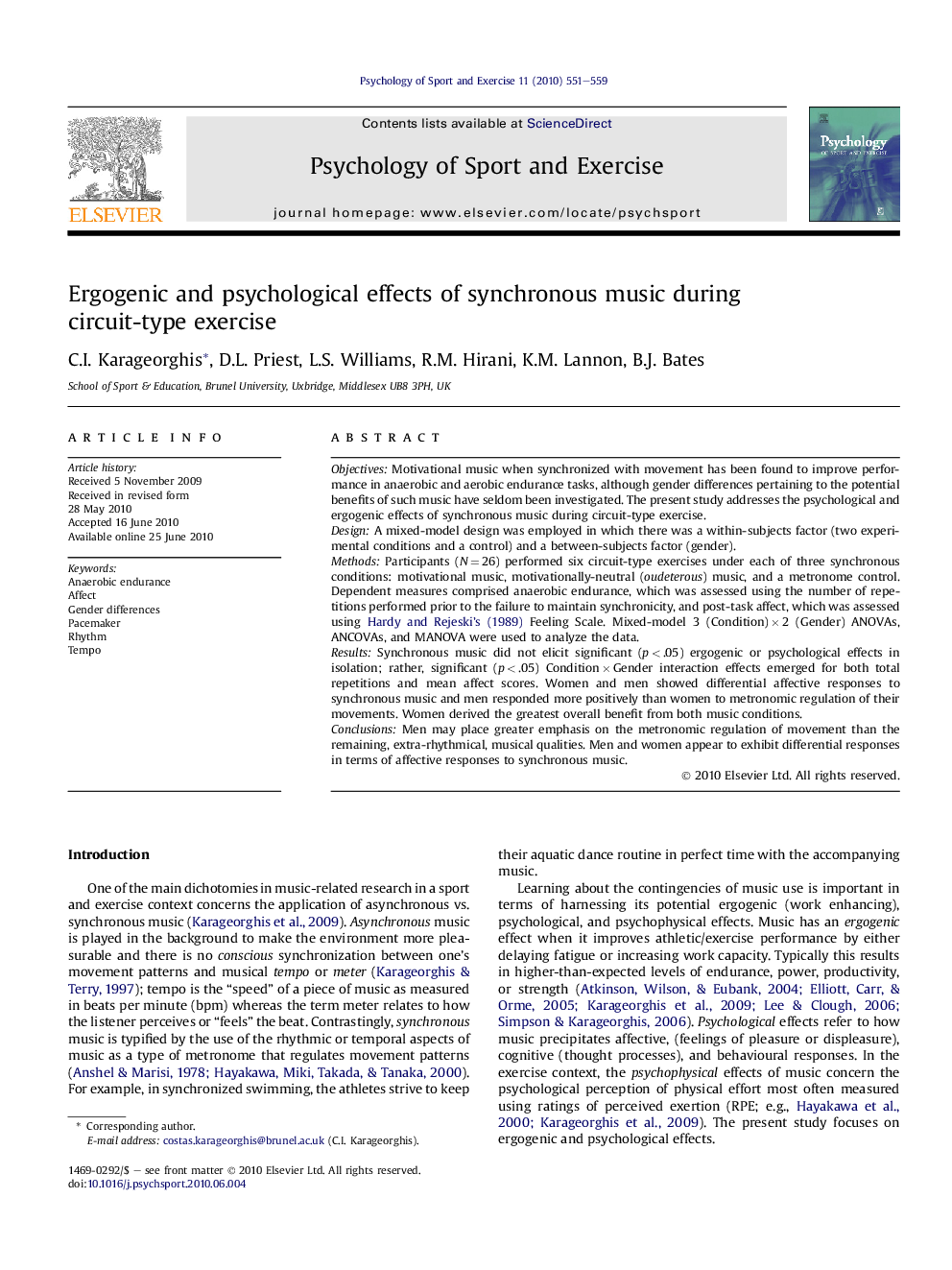| Article ID | Journal | Published Year | Pages | File Type |
|---|---|---|---|---|
| 894553 | Psychology of Sport and Exercise | 2010 | 9 Pages |
ObjectivesMotivational music when synchronized with movement has been found to improve performance in anaerobic and aerobic endurance tasks, although gender differences pertaining to the potential benefits of such music have seldom been investigated. The present study addresses the psychological and ergogenic effects of synchronous music during circuit-type exercise.DesignA mixed-model design was employed in which there was a within-subjects factor (two experimental conditions and a control) and a between-subjects factor (gender).MethodsParticipants (N = 26) performed six circuit-type exercises under each of three synchronous conditions: motivational music, motivationally-neutral (oudeterous) music, and a metronome control. Dependent measures comprised anaerobic endurance, which was assessed using the number of repetitions performed prior to the failure to maintain synchronicity, and post-task affect, which was assessed using Hardy and Rejeski’s (1989) Feeling Scale. Mixed-model 3 (Condition) × 2 (Gender) ANOVAs, ANCOVAs, and MANOVA were used to analyze the data.ResultsSynchronous music did not elicit significant (p < .05) ergogenic or psychological effects in isolation; rather, significant (p < .05) Condition × Gender interaction effects emerged for both total repetitions and mean affect scores. Women and men showed differential affective responses to synchronous music and men responded more positively than women to metronomic regulation of their movements. Women derived the greatest overall benefit from both music conditions.ConclusionsMen may place greater emphasis on the metronomic regulation of movement than the remaining, extra-rhythmical, musical qualities. Men and women appear to exhibit differential responses in terms of affective responses to synchronous music.
